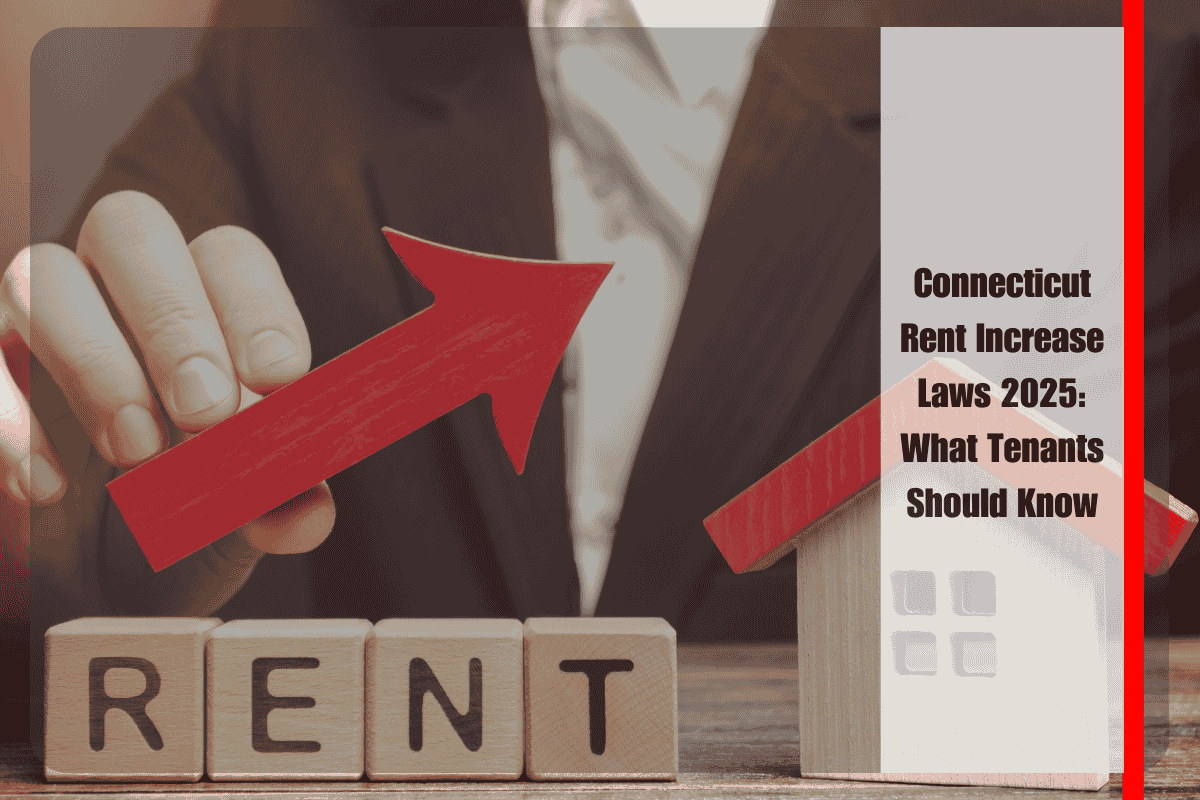In 2025, Connecticut’s rent increase laws focus mainly on tenant protections through local Fair Rent Commissions and notice requirements but do not impose a statewide cap on how much rent can be increased.
Here are the key points tenants should know:
- Limited Rent Control by Local Commissions:
- Connecticut has no statewide rent control but has Fair Rent Commissions in about 15 towns.
- These commissions protect vulnerable tenants (elderly, disabled, low-income) by limiting rent increases to a certain percentage set locally each year.
- Tenants in these towns can challenge excessive rent increases through these commissions.
- Notice Requirements for Rent Increases:
- Landlords must provide at least 45 days’ written notice before a rent increase takes effect when the lease is for more than one month.
- For month-to-month leases, notice must be at least one full rental period (e.g., one month). For shorter leases (like weekly), notice corresponds to the rental period length.
- The notice must specify the new rent amount and the effective date of the increase.
- No Statewide Limit on Increase Amounts:
- There is no statewide cap on how much landlords can raise rent in general, outside towns with Fair Rent Commissions.
- Rent hikes must not be retaliatory, discriminatory, or “harsh and unconscionable.”
- Rent increases must comply with lease terms, meaning no mid-lease increases unless allowed by the lease contract.
- Protections Against Illegal Increases:
- Landlords cannot raise rent in retaliation for tenant complaints or for discriminatory reasons based on protected classes like race, gender, or disability.
- Tenants have recourse through Fair Rent Commissions or courts for illegal or excessive increases.
- Special Rent Increase Limits for Rent-Restricted Units:
- For rent-restricted units under specific programs (such as those overseen by the Connecticut Housing Finance Authority), there may be a maximum allowable rent increase, for example, 5% annually as announced mid-2025.
In summary, while Connecticut allows market-based rent increases generally, tenants—especially those in protected categories and towns with Fair Rent Commissions—have important notice rights and some local caps on increases. Understanding your lease terms and local protections is critical for tenants to know what rent increase rules apply to them in 2025.
If you want, I can provide details about tenant appeal processes or Fair Rent Commission locations in Connecticut. Would you like that?
Sources
[1] https://www.hemlane.com/resources/connecticut-rent-control-laws/
[2] https://www.steadily.com/blog/how-much-can-a-landlord-raise-rent-in-connecticut
[3] https://www.robertcwhite.com/what-landlords-need-to-know-in-2025
[4] https://www.cga.ct.gov/2025/ba/pdf/2025HB-06892-R000265-BA.pdf
[5] https://www.cga.ct.gov/asp/CGABillStatus/cgabillstatus.asp?selBillType=Bill&bill_num=HB05725&which_year=2025












